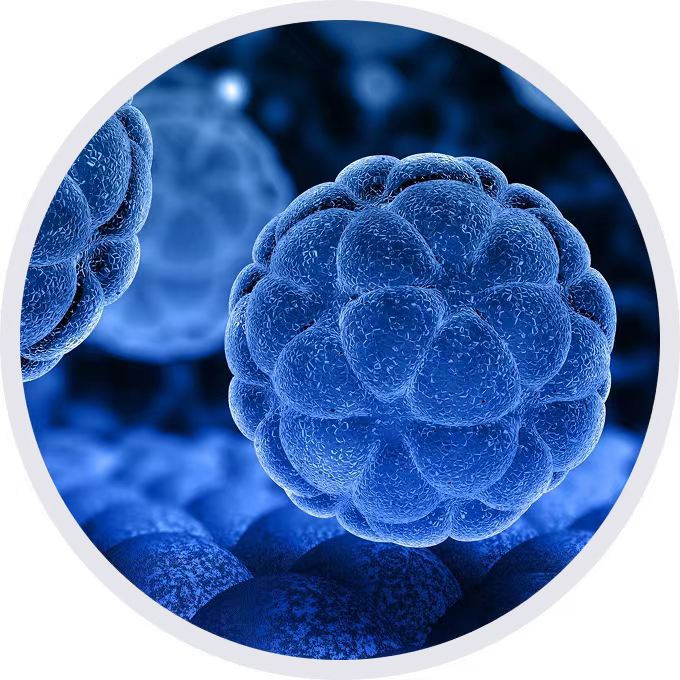
• 322092
The exogenous promoter and mouse Artn coding sequence were inserted into the mouse genome randomly. Mouse Artn can be secreted by B-Tg(mArtn) MC38 cells.

Gene targeting strategy for B-Tg(mArtn) MC38 cells. The exogenous promoter and mouse Artn coding sequence were inserted into the mouse genome randomly.
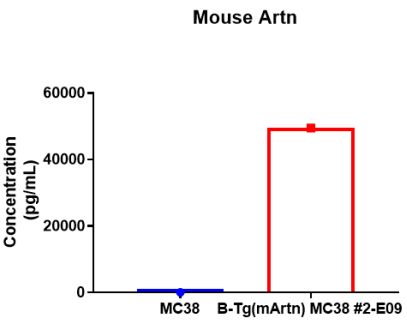
Artn expression analysis in B-Tg(mArtn) MC38 cells by ELISA. Mouse Artn was detected in the supernatant of B-Tg(mArtn) MC38 cells but not wild-type MC38 cells. The 2-E09 clone of B-Tg(mArtn) MC38 cells was used for in vivo experiments.
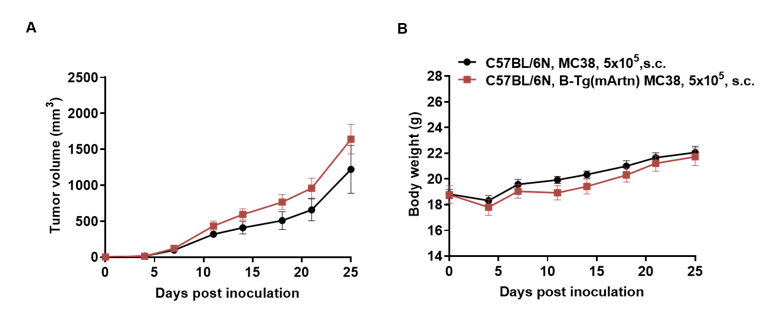
Subcutaneous homograft tumor growth of B-Tg(mArtn) MC38 cells. B-Tg(mArtn) MC38 cells (5x105) and wild-type MC38 cells (5x105) were subcutaneously implanted into C57BL/6N mice (female, 7-week-old, n=5). Tumor volume and body weight were measured twice a week. (A) Average tumor volume ± SEM. (B) Body weight (Mean ± SEM). Volume was expressed in mm3 using the formula: V=0.5 X long diameter X short diameter2. As shown in panel A, B-Tg(mArtn) MC38 cells were able to establish tumors in vivo and can be used for efficacy studies.
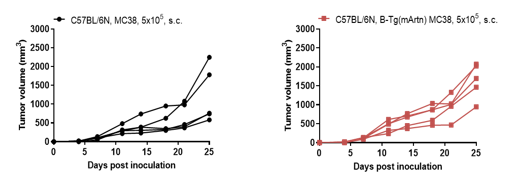
B-Tg(mArtn) MC38 tumor growth of individual mice. B-Tg(mArtn) MC38 cells (5x105) and wild-type MC38 cells (5x105) were subcutaneously implanted into C57BL/6N mice (female, 7-week-old, n=5). As shown in panel, B-Tg(mArtn) MC38 cells were able to establish tumors in vivo and can be used for efficacy studies.
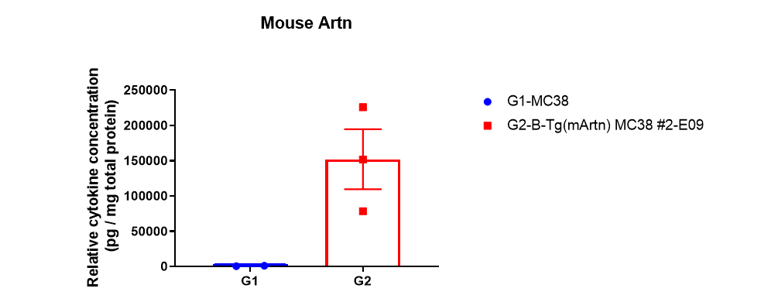
Tumor cells were harvested at the end of experiment and assessed for mouse Artn expression by ELISA. As shown, mouse Artn was highly expressed in the tumor homogenate. Data was shown as Mean ± SEM, and analyzed using T tests compared with G1. (*p<0.05, **p<0.01, ***p<0.001, ****p<0.0001)